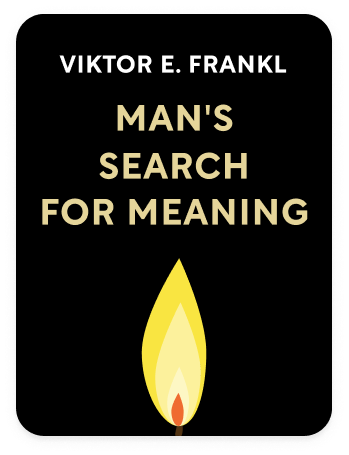

This article is an excerpt from the Shortform book guide to "Man's Search For Meaning" by Viktor E. Frankl. Shortform has the world's best summaries and analyses of books you should be reading.
Like this article? Sign up for a free trial here .
Why is nihilism harmful to your psychology? How can you work on overcoming nihilism?
Nihilism is one of the major obstacles that could stand in your way when looking for meaning and practicing logotherapy. This is why overcoming nihilism and nihilistic ideas is important.
Read more about overcoming nihilism to find the meaning of life, and how it can help you with logotherapy.
Overcoming Nihilism
Again, nihilism is the belief that life is meaningless. The nihilism we suffer from today is a personal, private one that each individual suffers alone. After all, there can be little camaraderie in the idea that everything’s meaningless. This is why overcoming nihilism is important.
Logotherapy calls our specific nihilism existential frustration. People generally get existentially frustrated in 3 different ways:
- They’re frustrated with existence in and of itself, specifically the human existence.
- Frustration with everything it takes to exist as a human from moment to moment, i.e. “why do I have to do all this?”
- They’re frustrated with the meaning of existence.
- Asking why humans exist at all and for what purpose, i.e. “why are we here at all?”
- They’re frustrated with the meaning of their personal existence.
- Someone struggling to find the purpose and meaning of their own life, “i.e. what am I here for?”
Once you fall into one of those frustrations, you can start to feel empty, distant, and aimless, and it gets harder to pull yourself out of this emotional place. Logotherapy refers to this place as an existential vacuum and stresses the importance of overcoming nihilism and nihilistic ideas.
- This was a significant phenomenon of the 20th century: a survey at the time of the 1992 edition showed that 25% of Frankl’s European students felt frustrated by existence and questioned their life’s meaning. Among Frankl’s American students, the percentage was an overwhelming 60%. And it’s not like it’s decreased in the 21st century.
Our frustrations with existence primarily surface when we’re bored. “Sunday Neurosis” is a depression that affects people who get through a very busy week only to reach Sunday and, in their boredom, realize how discontent they are with their lives, that there’s some inner void that isn’t filled. And, of course, with the continuing rise of automation, many of our day-to-day purposes will be stripped from us–robots will do our jobs. That plus extended life expectancies mean that we might hopefully have many years of old age when we don’t have a larger societal purpose like a job.
Prolonged existential frustration can lead to depression, aggression, addiction, or neuroses, which are mental fixations that result in different symptoms of stress.
- Depression and even suicide are tied to a feeling of meaninglessness, and get worse the longer someone remains in this existential vacuum.
- Abuses of power can be tied back to this existential frustration–someone who’s frustrated with their own life will often become numb to other people’s suffering, or, worse, want to cause others suffering to assuage their own.
- A study of alcoholics found that 90% suffered from a feeling of meaninglessness. Another studied drug addicts and found 100% of them agreed “things seem meaningless.”
You might be wondering how we got here–what could cause a generation-wide existential vacuum? Paradoxically, it could be the improvement of living conditions and freedom of choice.
- Early human ancestors had animal instincts – to survive, eat and drink, find shelter, and procreate. This innate behavior made a lot of automatic decisions, and there wasn’t much need (or ability) to think about a greater meaning.
- In early human history, as we developed intelligence and rational thinking, we broke ties with some of our most basic animal instincts. As society advanced, tradition took the place of biology as the driving factor behind our decisions.
- For example, in many societies, it was tradition that men worked and women took care of the home–this tradition effectively decided what both men and women should do with their lives, preventing an aimless search for meaning.
But now, with modernization and greater freedom of choice, we’ve lost touch with a lot of old human traditions that guided our behavior. There is no more instinct or tradition telling us what to do. Now we have to decide for ourselves what to do, and often we don’t know what that is – which leads to a lack of meaning.
Logotherapy gives us a framework to help us resist nihilism: if we assume life has meaning and our primary drive is to find that meaning, then it becomes about how to find that meaning instead of questioning whether a meaning exists at all. In Frankl’s opinion, logotherapy is a better way of overcoming nihilism than the more traditional and well-known psychotherapy.
- Psychotherapy, Sigmund Freud’s school of thought that asserted humans are driven by pleasure, is a reflective therapy: it suggests that our current behaviors are determined by our past experiences, and by reflecting on our pasts we can figure out what we’re seeking in the present.
- Because it’s reflective, it wouldn’t be able to effectively deal with this nihilism–if we found experiences in our past that made us believe life was meaningless, reflecting on those experiences would only reinforce that idea, it wouldn’t work to change it.
- Worse, psychotherapy would attribute the nihilism to external factors, or things outside ourselves–this would reinforce most patients’ nihilistic views, that we’re merely pawns of our biological, psychological, and social conditioning. It assumes a kind of determinism–that everything is already determined for us by external factors.
Overcoming nihilism is one of the challenges of practicing logotherapy. Working on ridding yourself of nihilistic ideas and overcoming nihilism is part of finding the meaning of life.

———End of Preview———
Like what you just read? Read the rest of the world's best book summary and analysis of Viktor E. Frankl's "Man's Search For Meaning" at Shortform .
Here's what you'll find in our full Man's Search For Meaning summary :
- How Viktor Frankl survived four Nazi death camps
- Frankl's life-changing advice for coping with suffering
- Why focusing on what you enjoy isn't enough to make your life meaningful






